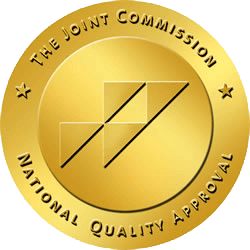Do you feel alone watching addiction happen to a teen you love? Statistically speaking, most drug use starts during the teen years, so you are not alone. The National Institute on Drug Abuse estimates there are 8,000 new drug users per day and more than half are under the age of 181. The sooner parents and caregivers recognize a problem exists, the better the chances of recovery. Drug use affects the body at a cellular level and can change the developing brain of an adolescent. The sooner you intervene, the greater potential to protect their development.
What Does Intervention Mean for Teens?
Teens use drugs for a variety of reasons, but some will just be experimenting due to peer pressure, curiosity or boredom. At this stage, intervention can help even if they are not addicted. Often drug abuse is rooted in a deeper problem, such as low self-esteem or depression. The goal of treatment for adolescents is behavior modification. Put simply, a treatment center will teach your teen better ways to deal with problems. With therapy, adolescents learn healthier ways of:
- Dealing with social pressure
- Bolstering self esteem
- Managing life stressors such as school or work
In some cases, the teen may have other problems going on at the same time – legal issues or difficulties at home, for example. The treatment will address all these needs simultaneously.
The Role of Family
Treatment is a learning process, not just for the teen, but, for the family, as well. The clinic staff will use education and therapy to strengthen the family relationships to support the adolescent’s sobriety. This involves:
- Improving communication
- Creating a nurturing home environment
- Reinforcing the parents and caretakers knowledge of addiction and recovery
The staff may reach beyond the home for help, too. Other adults that interact with the teen regularly, such as coaches, teachers and school counselors, may be part of the therapeutic process.
Skills Training
Part of the behavioral modification therapy includes developing skills that help the teen remain drug free2.This focuses on two areas: The first stage emphasizes the reasons behind drug use and the consequences of addiction. Through this training, the adolescent develops a better understanding of drugs and how they affect his or her life – past, present and future. The second stage focuses on developing skills that allow the teen to recognize risky scenarios and behaviors that can trigger drug use. Understanding when you are the most vulnerable allows you to take steps to support sobriety and avoid using drugs as a coping mechanism.
Continuity of Care
After the recommended treatment period, studies show that continuing care is critical to sobriety3. Continuing care will include:
- Drug use monitoring
- Follow-up home visits
- Group theories for both the teen and family members
- Support groups
Aftercare reinforces the behavior modification and keeps the teen from becoming overwhelmed by life stressors. Through multisystemic therapy that deals with the underlying cause of the drug use and family behavior therapy, addiction clinics help teens discover why they use and how to stop. They teach parents and caregivers ways to be supportive and not judgmental. It is the combination of these two critical clinical approaches that offers the best chance of success. If you know a teen that is using drugs or drinking alcohol, you are not alone. Now is the time to get help. Call us at 877-466-0620 for more information on treatment options for teens.
References:
- “DrugFacts: Nationwide Trends,” National Institute of Drug Abuse, January 2014, http://www.drugabuse.gov/publications/drugfacts/nationwide-trends
- Kathleen M. Carroll, Ph.D., Lisa S. Onken, Ph.D., “Behavioral Therapies for Drug Abuse,” American Journal of Psychiatry, August 2005, http://www.ncbi.nlm.nih.gov/pmc/articles/PMC3633201/
- Godley MD1, Godley SH, Dennis ML, Funk RR, Passetti LL., “The effect of assertive continuing care on continuing care linkage, adherence and abstinence following residential treatment for adolescents with substance use disorders,” Addiction, January 2007, http://www.ncbi.nlm.nih.gov/pubmed/17207126


